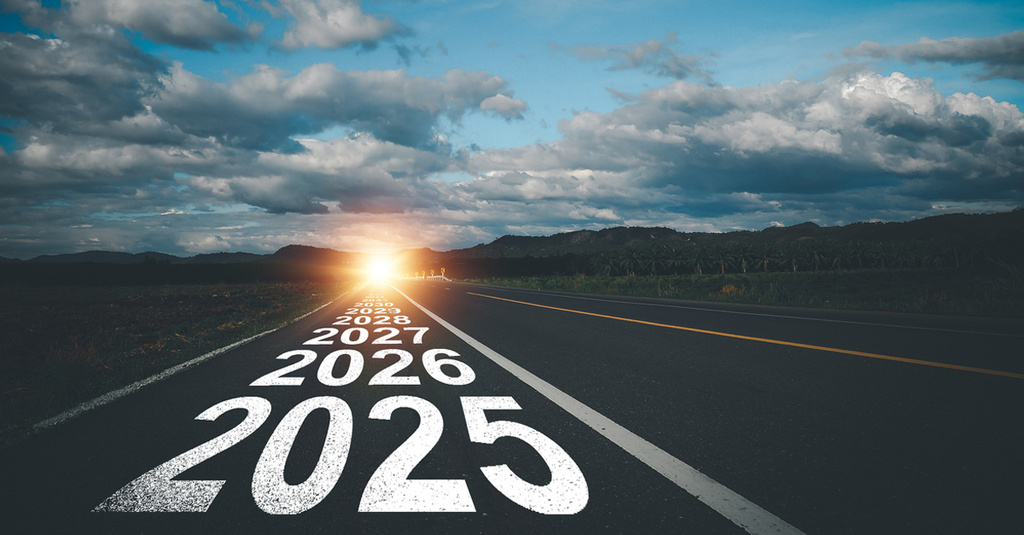
The Enduring Mission of Chalcedon and Christian Reconstruction
As the moral and cultural collapse of modern humanism continues to unfold before us, many are left wondering what should be done—and who is equipped to do it. The vision cast by R. J. Rushdoony at the founding of the Chalcedon Foundation was not a political platform or a reactionary movement, but a call to action for Christians to take dominion through obedience to God’s law in every sphere of life.

- Chalcedon Editorial
As the moral and cultural collapse of modern humanism continues to unfold before us, many are left wondering what should be done—and who is equipped to do it. The vision cast by R. J. Rushdoony at the founding of the Chalcedon Foundation was not a political platform or a reactionary movement, but a call to action for Christians to take dominion through obedience to God’s law in every sphere of life. That mission is as vital today as it was in the 1960s, and perhaps even more so as we see humanism in decline.
In two recent episodes of the Chalcedon Podcast, co-host Andrea Schwartz sat down with Chalcedon President Mark Rushdoony and Vice-President Martin Selbrede to discuss the future of Chalcedon’s work in light of current cultural upheaval. What emerged was not simply a reflection on past contributions but a resounding affirmation that the work of Christian Reconstruction continues—with the same theological foundation, the same long-term outlook, and the same unwavering faith in the victory of God’s Kingdom.
“The Message Remains the Same”
Mark Rushdoony was clear: “I think essentially the message remains the same,” he said of Christian Reconstruction. “One of the interesting things about his (R. J. Rushdoony) writings is they don’t appear dated; as though he just wrote them. I think Christian Reconstruction is more understandable for Christians today than it was certainly in 1965. It sounded a little bizarre to a lot of people who still saw hope in conservatism or reviving the past.”
Mark noted that the early supporters of R. J. Rushdoony shared a similar assumption to Christians today. He said, “The good times for Christians are often seen as what they knew that was better when they were younger.” The problem is, as Mark continued, “they don’t have the big picture view.” Therefore, a Christian worldview ministry was needed in the turbulent 1960s, and it’s still needed today.
While the culture may look different, the central task remains unchanged: to rebuild what is broken, to restore what is deteriorated, and to advance the crown rights of King Jesus in every sphere. Speaking of his father, Mark explained, “His idea of Christian Reconstruction was not to just tear down what’s bad, but to fix what is good and to rebuild. That’s the imagery of Christian Reconstruction.”
However, the idea is not novel. As Martin Selbrede emphasized, “If you were to ask him, did Christian Reconstruction begin in October of 1965 when he coined the phrase, he would say no.” Rather, it is a continuation of a much older battle—the Reformation’s struggle to restore the authority of Scripture over all of life.
Restoration and Reformation
From the Renaissance and Enlightenment to today’s technocratic secularism, humanism gained ground primarily because Christians ceded it. “The humanistic side of things gained momentum... because Christians did not resist,” Martin said. “They started to concede and give away ground, give away points, as we say. And as a consequence, things start to fall apart.”
That concession, he argues, must be reversed. “The need for actually going back to the original plans from the Reformation became more urgent the more humanism was able to sink the cultures into itself and make them more hellish.” Christian Reconstruction, then, is about restoration—a return to God’s blueprint for civilization, beginning with the individual and radiating out to families, churches, and cultures.
“It’s really a restoration of a pattern and way of thinking that got its foothold during the Reformation,” Martin explained. But it requires careful discernment and uncompromising clarity: “All mixtures of the faith and faithless things—Humanism, Christianity, syncretism—don’t actually propagate the Kingdom. They propagate humanism a bit slower in a different form, but not the Kingdom.”
A Mission Without an Expiration Date
One of the great misunderstandings about Christian Reconstruction is that it was a movement that would create relatively quick results. Mark made clear that this was never the case: “Something Christian Reconstruction was never intended to be was a program with a soon-to-be-accomplished date... Christian Reconstruction has always been about duty.”
Whether progress is fast or slow is beside the point. “Because something doesn’t work within 10 or 20 years, you can’t give up on it,” he said. “As long as things are crumbling around us and our culture—and they certainly are—then the purpose of Christian Reconstruction stays the same.”
Martin agreed, likening the Kingdom’s progress to a glacier: “It moves slowly, but it levels everything in its path.” He added, “Christian Reconstruction should not worry about the fact that we might be small in numbers. It’s a Gideon-sized army, and that suits us just fine.”
Every Thought Captive
If Rushdoony’s legacy is to be understood rightly, it must be grasped in its full scope. As Martin explained, “I counted 430 different topics that were addressed aggressively” in Roots of Reconstruction. From medicine to architecture, economics to education, Rushdoony sought to “take every thought captive to the obedience of Christ” (2 Cor. 10:5).
The logic is simple: “Wherever Christians evacuate, that vacuum is filled by the humanists... And that’s on us because strategically we have allowed that to happen on our watch.”
But the solution is equally clear: Christians must enter every field, every discipline, every arena of thought and labor—not necessarily as “activists,” but as faithful ambassadors of God’s Kingdom. “Multiply your talents,” Martin said. “Move into those areas, take them for Christ, no matter how small it might seem.”
Yet, the rethinking is always along moral lines. While the methods of communication and engagement will undoubtedly change, the moral basis for Christian obedience will not. Mark observed, “Ultimately the Bible presents our problems as essentially moral. Man is a moral being.”
Christian Reconstruction doesn’t call for smarter methods; it calls for faithful living. “It’s assuming our duties. It’s not just having the right theology. It’s actually acting in terms of the fact that Christ is Lord.”
That theological conviction is central to Chalcedon’s vision of the future. “We are ordained to victory,” Mark recalled his father saying shortly before he died. “We don’t need to understand the vicissitudes of the history of the kingdom of God. All we need to do is be faithful to it.”
What Does the Future Hold?
Looking ahead, Chalcedon’s work will depend not on new innovations but on renewed obedience. “The message we propound will look different,” Mark admitted, “but it depends upon how Christians react in the next 50 years.”
He lamented that “the church is hesitant or resistant to actually doing things God’s way,” especially in terms of God’s law. “That’s one of the most unfortunate things of Christianity in my lifetime,” he said.
Martin echoed the concern but emphasized the opportunity: “If you don’t have the alternative, then of course you’re tearing things down but not replacing them with anything. Rushdoony realized that the Word of God did not leave man in the lurch.”
And what is that alternative? “The reconstruction of society built on God’s law, God’s authority, and Christ’s lordship.”
Not Politics, But Faithfulness
A common misconception has been to conflate Chalcedon’s mission with political activism, especially since Newsweek magazine once called Chalcedon a “think tank of the religious right.” Mark clarified, “That was never an accurate description. He was trying to get people to stop looking at the solution as being political and to start thinking of it as being religious.”
Martin pointed out why politics is so often emphasized: “Men seek a political solution because they don’t want to hear that the solution’s a moral solution. The problem is a moral problem.”
If not politics, then you’re left with the church, and the family, and “the family is absolutely essential,” Mark affirmed. “It is the basic institution of Scripture.” He pointed to the Ten Commandments, noting how many directly defend the integrity and continuity of the family—its property, authority, and legacy. “Growing and establishing the family as the means by which the Great Commission is fulfilled” remains as vital now as ever, and must be a top priority in the decades ahead.
The Lasting Voice of R. J. Rushdoony
As the conversation closed, Andrea asked Mark how his father might respond to today’s growing distrust in government and public education.
“In a way, I think he’d shake his head,” Mark replied. “What did you expect from government?” Rushdoony’s gaze was always fixed on the greater Kingdom—the one “whose builder and maker is God.” The civil government has a purpose but only as a minister of God (Rom. 13), yet this remains a point universally missed by critics of Rushdoony and Christian dominion. They’re still convinced of the debunked conspiracy theory about the looming threat of a Christian theocracy.
Still, we are called to dominion, which is the legacy we inherit—not a name or institution, but a calling. As Martin said, “Victory is essentially coded into our blood if we actually assume the mantle of taking every thought captive to the obedience of Christ.”
Rushdoony “set the trend,” he added. “He set a pattern for us to follow. And we can take an area that he already invested and go deeper. We can take an area that he developed and go wider. We can take an area he never touched and start the same work there.”
The work is still in front of us. The tools are in our hands. And the Kingdom will advance—slowly, steadily, surely—until there is nothing left but the Kingdom of God.
Listen to Episodes 56 and 57 of the Chalcedon Podcast—as well as all previous episodes.

- Chalcedon Editorial